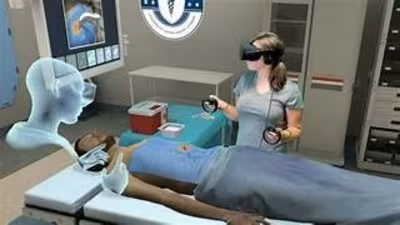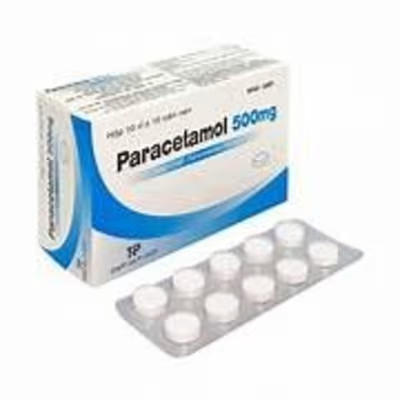Impact of Music Therapy on Mental Health
Introduction
Music therapy, a shape of expressive arts therapy, includes the use of track to enhance mental and emotional fitness. It has been increasingly identified as a treasured device in the remedy of numerous mental health situations. The impact of track therapy on intellectual fitness is profound and multifaceted, supplying benefits together with strain reduction, stepped forward mood, better awareness, enhanced communication, and emotional expression. This therapy can be utilized in a number of settings, such as hospitals, rehabilitation centers, colleges, and homes, and can be tailor-made to satisfy the particular wishes of each individual. This paper will explore the giant effect of music remedy on intellectual health, presenting an expertise of its healing results, packages, and the scientific proof supporting its efficacy. Since the end of World War 2, music therapy had been crucial in treating patients with developmental disabilities, post-traumatic disorders, or simply helping people positively affect their mood through sounds. The use of music for therapy and healing dates back to Ancient Greece, but its therapeutic use today began in the 20th century, after World War II had ended. The earliest reference to music therapy comes from a 1789 article called ““Music physically considered.”
What is Music Therapy?
Music therapy is an expressive artwork remedy. Whether you're writing music, listening to it, or singing alongside – tune therapy in any shape calls for some shape of communication and expression. Music therapy is frequently carried out below supervision, wherein the therapist makes use of specialized gear or different mechanisms to enforce this system successfully. For instance, musical instruments just like the guitar or piano are popular song remedy equipment. Some varieties of track therapy also involve imagery, where the therapist lightly courses the consumer to assume himself in a pleasant situation and plays soothing tune to create the proper ambiance for it. Some key factors about tune therapy: - It is a proof-based totally practice used to cope with situations like depression, anxiety, autism, dementia, and greater. Clients do no longer want musical revel in or expertise to participate and benefit. Approaches can be active (playing contraptions, making a song, songwriting) or passive (taking note of song). Music therapists complete authorized training applications and clinical internships. Goals are tailored to every customer's needs - music is the device used inside the therapeutic manner. It can be used in character or organization settings across healthcare and network websites. Music therapy includes listening, communicating, and understanding. It is a popular technique used in hospitals, academic establishments, and different scientific settings to ease customers and cause them to comfortable. Psychologists agree with that track therapy improves the great of existence (Scott, 2018). From ache to private loss, attentional issues to dating issues, song therapy is one restoration that fits all. Professor Suzanne Hanser of Berklee College of Music said that song remedy serves five good sized functions: Shifting one’s attention from problems to solutions, Offering a rhythmic shape for rest and respiration, Helping customers visualize nice imagery that conjures up pleasure and happiness, Helping them attain a deep state of relaxation, Changing temper.
Types of Music Therapy
Analytical song remedy: Analytical tune remedy encourages you to use an improvised, musical " speak" via singing or playing a tool to explicit your subconscious mind, which you could mirror on and discuss together with your therapist in a while. Benenzon track remedy: This layout combines a few concepts of psychoanalysis with the technique of creating track. Benenzon track therapy includes the look for your " musical sound identity," which describes the outside sounds that maximum carefully match your inner mental state. Cognitive behavioral tune therapy (CBMT): This method combines cognitive behavioral therapy (CBT) with song. In CBMT, song is used to enhance some behaviors and adjust others. This approach is based, no longer improvisational, and can consist of taking note of track, dancing, making a song, or playing a tool. Community music therapy: This format is centered on the usage of tune as a way to facilitate trade at the network degree. It’s done in a group placing and calls for an excessive level of engagement from every member. Nordoff-Robbins track therapy: Also known as creative tune remedy, this approach involves gambling a device (often a cymbal or drum) even as the therapist accompanies the usage of every other tool. The improvisational system uses music as a way to assist enable self-expression. The Bonny approach of guided imagery and music (GIM): This form of therapy uses classical song as a manner to stimulate the creativeness. In this method, you give an explanation for the emotions, sensations, reminiscences, and imagery you experience even as being attentive to the tune. Vocal psychotherapy: In this layout, you operate diverse vocal sports, natural sounds, and respiratory strategies to hook up with your feelings and impulses. This exercise is meant to create a deeper experience of connection with you.
Effectiveness of Music Therapy
Studies have proven that song remedy can be an powerful thing of melancholy treatments .According to the studies stated, the use of track remedy become maximum useful to human beings with melancholy while it become mixed with the standard remedies (along with antidepressants and psychotherapy). When used in mixture with other types of remedy, tune remedy may additionally help reduce thoughts, melancholy, and tension in people with OCD. Music acts as a medium for processing emotions, trauma, and grief—but music can also be utilized as regulating or calming agent for anxiety or for deregulation. Music can be applied to regulate mood. Because of its rhythmic and repetitive aspects, song engages the neocortex of our mind, which calms us and decreases impulsivity. We frequently make use of music to healthy or alter our mood. When added to standard care, music therapy can improve the global state, mental state, social functioning, and quality of life of people with schizophrenia or schizophrenia-like disorders (Geretsegger et al., 2017). Music therapy has a strong positive effect in enhancing contemplation, treatment readiness, motivation, and cravings in addiction treatment (Megranahan & Lynskey, 2017). Recently, researchers looked at the impact of music interventions on health associated nice of lifestyles, and tried to reply the query approximately the nice manner to help make that shift closer to launch, relaxation, and rehabilitation. This current systematic review and meta-analysis (a look at of studies) confirmed that the use of tune interventions (listening to music, singing, and music remedy) can create massive upgrades in intellectual fitness, and smaller improvements in bodily health–associated great of life. While the researchers observed a wonderful effect at the psychological pleasant of lifestyles, they determined nobody pleasant intervention or " dose" of music that works satisfactory for every person. .Table will also have evidences of effectiveness.
Music therapy for specific Mental Health Condition
Depression: Music remedy has been proven to be effective in lowering symptoms of depression. It is a therapeutic technique that makes use of tune to address emotional, cognitive, and social needs. Music remedy may be provided in diverse bureaucracy, consisting of listening to song, gambling musical units, singing, and songwriting. Several studies have verified the high quality consequences of music remedy on melancholy. For example, a meta-analysis posted inside the journal PLOS ONE in 2020 examined the effects of various tune remedy strategies on melancholy. The evaluation located that various song remedy interventions, including being attentive to music, tune-assisted relaxation, and improvisational track therapy, have been effective in decreasing despair symptoms. The have a look at also observed that track therapy had a stronger impact on reducing despair in people with excessive mental contamination or psychiatric issues as compared to the ones without these conditions. Another systematic evaluation and meta-analysis posted in the International Journal of Geriatric Psychiatry in 2016 centered on music remedy for older adults with depression. The evaluation located that song remedy significantly reduced depressive symptoms in this populace.
Anxiety: Many studies have shown that music therapy can reduce anxiety, including in people with cancer, those undergoing surgery, and those in intensive care units. Some studies show that music can lower blood pressure and heart rate, which directly affects a person's mood. There is evidence that people who experience music therapy experience reduced anxiety immediately after the session, suggesting that music therapy can be an effective way to quickly reduce symptoms. Music affects the amount of stress hormones the body releases, such as adrenaline and cortisol, and reducing these hormones can help relieve symptoms of anxiety.
References
Edwards, J., Trygve A., and Stine C. Blichfeldt A. “Songwriting Techniques in Music Therapy Practice.” The Oxford Handbook of Music Therapy, 2015.
Edwards, J., and Grocke, D. “Receptive Music Therapy.” The Oxford Handbook of Music Therapy, 2015.
Erkkilä, J., et al. “The effect of improvisational music therapy on the treatment of depression: protocol for a randomised controlled trial.” BMC psychiatry, 2008 vol. 8, p. 50.
Stegemann, T., et al. “Music Therapy and Other Music-Based Interventions in Pediatric Health Care: An Overview.” Medicines (Basel, Switzerland), 2019, vol. 6, p. 25.
Geretsegger, M., Mossler, K. A., Bieleninik, E., Chen, X. J., Heldal, T. O., & Gold, C. (2017). Music therapy for people with schizophrenia and schizophrenia-like disorders. Cochrane Database of Systematic Reviews, 2017(5), https://doi. org/10.1002/14651858.CD004025.pub4
Megranahan, K., & Lynskey, M. T. (2017). Do creative arts therapies reduce substance misuse? A systematic review. The Arts in Psychotherapy, 57, 50-58.
Like this project
Posted Oct 7, 2023
medical
Likes
0
Views
16
Tags



